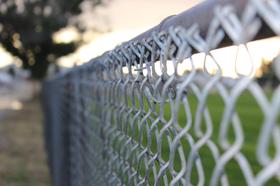Top Rankings
Maricopa Unified School District (4441) ranks among the top 20% of public school district in Arizona for:
Category
Attribute
Diversity
Most diverse schools (Top 1%)
Community Size
Largest student body (number of students) (Top 1%)
For the 2025-26 school year, there are 10 public elementary schools serving 8,209 students in Maricopa Unified School District (4441). This district's average elementary testing ranking is 5/10, which is in the bottom 50% of public elementary schools in Arizona.
Public Elementary Schools in Maricopa Unified School District (4441) have an average math proficiency score of 24% (versus the Arizona public elementary school average of 35%), and reading proficiency score of 35% (versus the 40% statewide average).
Minority enrollment is 75% of the student body (majority Hispanic), which is more than the Arizona public elementary school average of 67% (majority Hispanic).
Overview
This School District
This State (AZ)
# Schools
13 Schools
1,644 Schools
# Students
9,225 Students
761,345 Students
# Teachers
504 Teachers
33,884 Teachers
Student-Teacher Ratio
18:1
18:1
Student By Grade
District Rank
Maricopa Unified School District (4441), which is ranked within the bottom 50% of all 603 school districts in Arizona (based off of combined math and reading proficiency testing data) for the 2022-2023 school year.
The school district's graduation rate of 74% has decreased from 76% over five school years.
Overall District Rank
#297 out of 618 school districts
(Top 50%)
(Top 50%)
Math Test Scores (% Proficient)
24%
34%
Reading/Language Arts Test Scores (% Proficient)
35%
40%
Science Test Scores (% Proficient)
19%
24%
Graduation Rate
74%
77%
Students by Ethnicity:
Diversity Score
0.71
0.66
% American Indian
4%
5%
% Asian
2%
4%
% Hispanic
45%
47%
% Black
16%
6%
% White
25%
33%
% Hawaiian
1%
n/a
% Two or more races
7%
5%
All Ethnic Groups
District Revenue and Spending
The revenue/student of $9,174 in this school district is less than the state median of $11,421. The school district revenue/student has declined by 17% over four school years.
The school district's spending/student of $8,202 is less than the state median of $11,323. The school district spending/student has declined by 17% over four school years.
Total Revenue
$85 MM
$12,837 MM
Spending
$76 MM
$12,727 MM
Revenue / Student
$9,174
$11,421
Spending / Student
$8,202
$11,323
Best Maricopa Unified School District (4441) Public Elementary Schools (2025-26)
School
(Math and Reading Proficiency)
(Math and Reading Proficiency)
Location
Quick Facts
Rank: #11.
Pima Butte Elementary School
(Math: 54% | Reading: 60%)
Rank:
Rank:
9/
Top 20%10
42202 W Rancho El Dorado Pkwy
Maricopa, AZ 85138
(520) 568-7150
Maricopa, AZ 85138
(520) 568-7150
Gr: PK-5 | 415 students Student-teacher ratio: 15:1 Minority enrollment: 61%
Rank: #22.
Santa Rosa Elementary School
(Math: 36% | Reading: 45-49%)
Rank:
Rank:
7/
Top 50%10
21400 N Santa Rosa Dr
Maricopa, AZ 85138
(520) 568-6150
Maricopa, AZ 85138
(520) 568-6150
Gr: PK-6 | 538 students Student-teacher ratio: 17:1 Minority enrollment: 75%
Rank: #33.
Butterfield Elementary School
(Math: 38% | Reading: 37%)
Rank:
Rank:
7/
Top 50%10
43800 W Honeycutt Rd
Maricopa, AZ 85138
(520) 568-6100
Maricopa, AZ 85138
(520) 568-6100
Gr: PK-5 | 860 students Student-teacher ratio: 15:1 Minority enrollment: 75%
Rank: #44.
Maricopa Elementary School
(Math: 41% | Reading: 31%)
Rank:
Rank:
6/
Top 50%10
18150 N Alterra Pkwy
Maricopa, AZ 85139
(520) 568-5160
Maricopa, AZ 85139
(520) 568-5160
Gr: PK-6 | 851 students Student-teacher ratio: 16:1 Minority enrollment: 79%
Rank: #55.
Santa Cruz Elementary School
(Math: 27% | Reading: 36%)
Rank:
Rank:
6/
Top 50%10
19845 N Costa Del Sol
Maricopa, AZ 85138
(520) 568-5170
Maricopa, AZ 85138
(520) 568-5170
Gr: PK-6 | 852 students Student-teacher ratio: 15:1 Minority enrollment: 81%
Rank: #66.
Saddleback Elementary School
(Math: 29% | Reading: 33%)
Rank:
Rank:
5/
Bottom 50%10
18600 N Porter Rd
Maricopa, AZ 85138
(520) 568-6110
Maricopa, AZ 85138
(520) 568-6110
Gr: PK-6 | 712 students Student-teacher ratio: 13:1 Minority enrollment: 76%
Rank: #77.
Maricopa High School
(Math: 23% | Reading: 37%)
Rank:
Rank:
5/
Bottom 50%10
45012 W Honeycutt Ave
Maricopa, AZ 85139
(520) 568-8100
Maricopa, AZ 85139
(520) 568-8100
Gr: 6-12 | 2,041 students Student-teacher ratio: 23:1 Minority enrollment: 72%
Rank: #88.
Desert Wind Middle School
(Math: 12% | Reading: 31%)
Rank:
Rank:
3/
Bottom 50%10
35565 W Honeycutt Rd
Maricopa, AZ 85139
(520) 568-7110
Maricopa, AZ 85139
(520) 568-7110
Gr: 6-8 | 903 students Student-teacher ratio: 20:1 Minority enrollment: 76%
Rank: #99.
Maricopa Wells Middle School
(Math: 14% | Reading: 28%)
Rank:
Rank:
3/
Bottom 50%10
45725 W Honeycutt Ave
Maricopa, AZ 85139
(520) 568-7100
Maricopa, AZ 85139
(520) 568-7100
Gr: 6-8 | 903 students Student-teacher ratio: 20:1 Minority enrollment: 79%
Rank: #1010.
Maricopa Virtual Academy
(Math: 6-9% | Reading: 32%)
Rank:
Rank:
3/
Bottom 50%10
44150 W Maricopa Casa Grande H
Maricopa, AZ 85138
(520) 568-5100
Maricopa, AZ 85138
(520) 568-5100
Gr: K-12 | 134 students Student-teacher ratio: 27:1 Minority enrollment: 72%
Recent Articles

School Choice vs. Neighborhood Schools: Key Factors
Explore school choice vs. neighborhood schools in 2025. Learn key factors parents should weigh when deciding the best fit for their child.

Best School Match 2025: Public vs Charter vs Magnet
Compare 2025 public, charter, and magnet school options with updated data, trends, and strategies to find the best fit.

Public School Boundaries and Equity in 2025
Explore how public school boundaries shape access, equity, and opportunity for students in 2025. Learn the impact on families and education policy.





